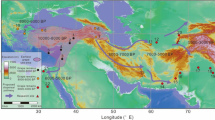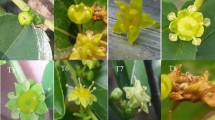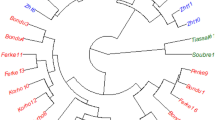Abstract
SINCE 1918, Hydra vulgaris attenuata and Hydra vulgaris vulgaris have been cultivated in the Notre Dame Laboratory for teaching purposes. Very occasionally these cultures have had to be replenished from outside sources. It was not until 1946 that I noticed the occurrence of Pelmatohydra oligactis, which I felt sure had been introduced in material obtained from a dealer in the south of England. The Hydra vulgaris vulgaris were completely ousted by the rapid spread of Pelmatohydra oligactis. In October 1947 all the specimens were reproducing luxuriantly; even small individuals were covered with testes. After this efflorescence, the organisms gave place to Hydra vulgaris vulgaris.
This is a preview of subscription content, access via your institution
Access options
Subscribe to this journal
Receive 51 print issues and online access
$199.00 per year
only $3.90 per issue
Buy this article
- Purchase on Springer Link
- Instant access to full article PDF
Prices may be subject to local taxes which are calculated during checkout
Similar content being viewed by others
Author information
Authors and Affiliations
Rights and permissions
About this article
Cite this article
TAYLOR, M. Distribution of Pelmatohydra oligactis (Pallas) in Scotland. Nature 175, 44–45 (1955). https://doi.org/10.1038/175044b0
Issue Date:
DOI: https://doi.org/10.1038/175044b0
Comments
By submitting a comment you agree to abide by our Terms and Community Guidelines. If you find something abusive or that does not comply with our terms or guidelines please flag it as inappropriate.



